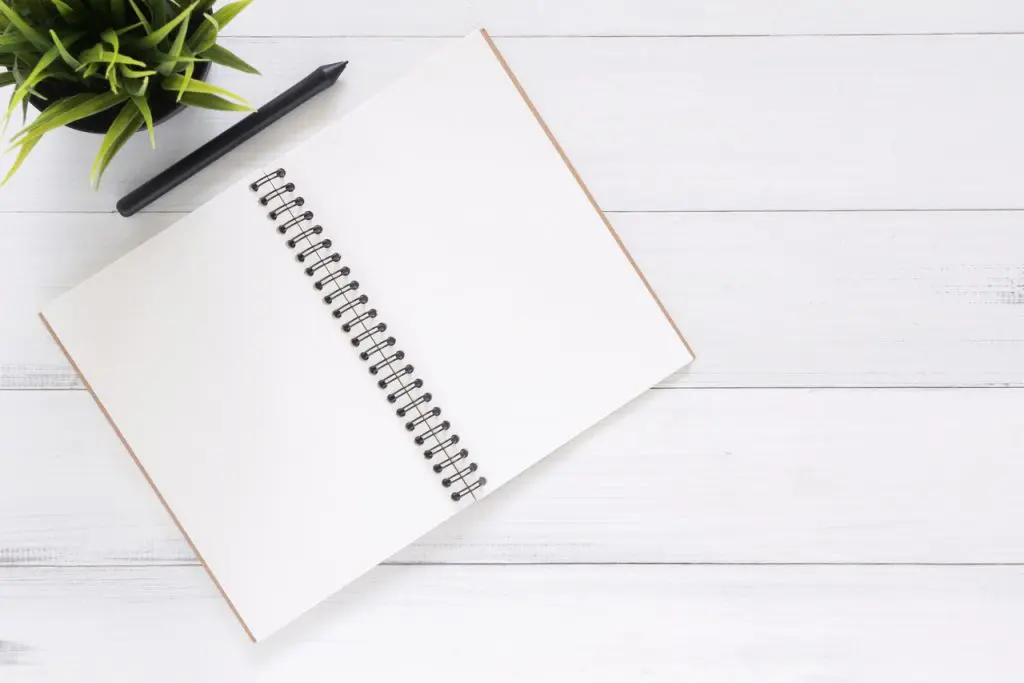Looking for AP World History tips? You’ve come to the right place.
When it comes to the AP World History exam, you can definitely expect it to be complicated. In fact, very few people are able to get a 5 on this test, but if you’re conscientious about studying and you work hard at it, you should be able to push yourself a little further.
The key is to make sure you study the right ways and that you’re paying attention to the material. But if you don’t know how to study for AP World History, it can be difficult. Studying along with your class is going to be a significant step, as is taking the test as quickly as you can after completing the course, but we’re getting a little ahead of ourselves here. You’re not going to figure out how to study for the AP World History exam in one day.
The AP World History test is distributed by CollegeBoard, which means they’re an excellent resource for anything you might need. Official practice questions, rubrics, tests, old answers and more are all available through their website. If you want to study these things (trust us, you do) you’re going to want to check CollegeBoard to get the information.
We’re going to evaluate some of the top AP World History general study tips as well as looking at each of the 2 sections within the test. You’ll find multiple choice, short answer, document-based essay and long essay questions for a total of 60 questions and a total of 3 hours and 15 minutes. This is going to be a long test, so make sure that you’re mentally prepared for what it’s going to take.
If you read through these tips and you work on each of them you’re definitely going to be better prepared. You’ll know everything you need to know for AP World History. You may not get a 5, but you’re definitely going to have an excellent foundation to start from and a better chance of getting a higher score than you would have otherwise.
If you’re looking for the best AP World History review books, read our guide here.
General Study Tips for AP World History
There are a number of different tips that you can definitely use when it comes to taking the AP World History test. We’re going to look at some of the general areas to get started and that way you’re going to have no problem getting your primary studying done. These tips are going to help you get a good foundation for how to study the textbook and what you should be doing in order to make sure you master the information (like using AP World History practice test questions). From here, we’ll take a look at some of the other tips and things you’ll need for the different sections of the test.
1. Study Daily
The first thing you want to do is study every single day. By studying each day, you’re able to keep the information fresh in your mind, and you don’t have to worry about missing any of the topics. You can focus on small sections each day and have time to get through them.
2. Outline Each Chapter
You’re not going to have the time or the energy to read through each chapter of your textbook multiple times. Try to outline the chapters so you can skim through those outlines or notes when you want to brush up on different parts or different time periods. You’ll be creating your own AP World History study guide.
3. Look for Outlines Online
If you don’t really want to write up your own outlines, you can also look for some outlines that are available online. You may be able to find some that are even better than what you could write yourself. Plus, there are a lot of different classes that are probably using the same text.
4. Barron’s AP World History Book
This is a great AP World History study book, but the Princeton book is another one that you could use. Each one is going to have some practice questions as well as some easy to read and understand notes. You’ll be able to get a good start on your studying this way.
5. Take Breaks
You definitely want to add in breaks when you’re studying. Breaks are going to help you take a few minutes to breathe, and they’re going to make it possible for you to relax. This will make sure you’re not cramming too hard and that you’re not getting overly stressed.
6. Use Practice Questions
Practice questions, especially the official ones from CollegeBoard, are going to help you understand what the test is going to look like. They’re going to show you past questions as well as the overall format of questions that you can expect.
7. Know How to Analyze and Assess Historical Documents
Historical documents are going to be a big part of this test so make sure you know how to read them and how to get the information that you need from them. You’ll need to know how to use that information to support a conclusion as well.
8. Take Practice Tests
Use an AP World History practice test. Practice tests are going to help you learn what the test is going to look like and they’ll help you with time management. You also want to pay attention to the areas that you’re having trouble with so you can focus your studying on those areas as you continue.
9. Keep Up With the Class Reading
If you read along with the class and keep up with where you’re supposed to be it’s going to be a whole lot easier for you to keep building on the knowledge you already have and to make sure that you’re not missing anything as you move forward.
10. Know How to Read Charts, Tables, and Maps
There will be some of each of these on your exam, so it’s vital that you know how to look at them and how to gather information from them. This will definitely play into being able to answer not just multiple choice but essay questions as well.
11. Know Where You Struggle
Pay attention to the information that you’re missing when you take practice tests or when you try to answer practice questions. You want to make sure that you’re studying those areas and spending more of your study time on those subjects rather than things you know.
12. Study With a Group
A group can be a big help when you’re studying because everyone can help the group with the parts that they know. If you don’t know an area, you can get help on it and if you do you’re going to be able to work with the group on that section to make it easier for everyone.
13. Keep Track of Time
When you’re answering questions or taking practice tests, it’s vital that you keep track of time. You want to make sure that you aren’t taking longer than the time you’re going to get on the actual test so you can allot enough time to each question.
14. Focus on Memorizing General Trends
The general trends and the ways that different situations and events relate to one another are the primary focus of this test. These are the things that you want to spend your time trying to remember rather than specific dates.
15. Watch Crash Course Videos
There are several crash course videos that you can look at online. They’ll help you with different time periods, and some are even for the entirety of the world history class and test. Make sure you’re checking out a couple of them to get a thorough understanding.
Section 1 Tips for AP World History (Multiple Choice and Short Answer)
Here is where you’ll have Ap World History exam multiple choice and AP World History short answer questions. The first section of this test consists of 55 multiple choice questions (which include AP World History stimulus based questions on the new version) and 3 short answer. The multiple choice questions are allotted 55 minutes and count for 40% of your total score. The short answer are allotted 40 minutes and count for 20% of your overall score. There are a number of different things to keep in mind for this section, and we’ll go over a number of different things including making sure that you answer all of the questions and making sure that you understand the question before you try to answer it. You want to make sure you’re paying attention in this section because it’s the longest and is worth the highest percentage of points.
16. Don’t Leave Any Questions Blank
You aren’t going to get penalized for a wrong answer, so you definitely don’t want to leave any questions blank. If you don’t know the question, you can make a guess (we’ll talk about that in a minute) because even a 25% chance is better than a 0% chance.
17. Make an Educated Guess
If you don’t know the answer to the question take a minute to read through the possible answers and see if you can eliminate any of them. Even if you can only remove one, you’re going to have a better chance of getting the points than if you don’t eliminate any.
18. Use High-Quality Erasers
If you need to change an answer, you need to be able to erase the mark you made on your answer sheet entirely. That means you’re going to need a good eraser that will make it possible to do so. A bad eraser could mean two bubbles being filled in and that means you don’t get any points.
19. Keep Track of Your Answer Sheet
If you’re going to be moving around and answering questions out of order, it’s essential that you keep track of where you are on your answer sheet. Don’t skip over bubbles that you’re not supposed to or put answers in the wrong bubbles.
20. Read All Words in the Question
When you read through your question make sure you read every word of it. Missing a single word or misreading a single word could be the difference between two different answers and you don’t want to get a question wrong because you read it wrong.
21. Answer the Questions You Know First
The first thing you should do is read all of the questions. Each of the multiple choice questions is worth the same amount of points and each of the short answer is worth the same amount of points. What you want to do is answer the questions you know first, so you have a set number of guaranteed points.
22. Make Sure You Understand the Question
If you don’t understand the question take a minute to read through it again. You should be able to understand what it’s asking you before you attempt to pick an answer but reading the answers may also give you an idea of what the question is trying to say.
23. Try to Answer the Question Before You Read the Answers
When you read the question see if an answer comes to you before you even read the answers. If it does, then that’s probably the answer (we’ll talk about trusting your gut). If nothing comes to you, then go through the answers and see if one sticks out.
24. Look for Absolutes
Most of the time absolutes are going to invalidate an answer. ‘Always’ or ‘never’ are generally not the right answer so look for those words to see if they work for the question. If they are going to be the right answer chances are you’re going to know it immediately.
25. Choose the Best Answer Not Just the Correct Answer
There could be more than one answer that’s actually correct so make sure you’re looking for one that’s the best possible answer. You want something that best fits what the question seems to be looking for.
26. Trust Yourself
If you think you know the answer go with it. Trust yourself and believe that you’re on the right track. Second-guessing yourself usually leads to choosing the wrong answer, and that’s definitely not something you want. You want to trust yourself.
27. Keep Your Answers Concise
Don’t write long answers for your short answer questions. These are intended to be quick and concise so try to answer the question in as few words as possible. These are not meant to be multi-paragraph, and that means you should be able to write just a few sentences at most to get your answer out there.
28. Use Examples
You do want to have some examples and all the information requested in the question. This might mean using information that’s provided or using information that you already know from your classes. Don’t use your own personal anecdotes or experiences, however.
29. Stick to What You Know
When it comes to short answer questions make sure that you’re not jumping too far into things you don’t know. Stick to supporting points and information that you feel confident in and that you know you’re using correctly so you can get the points.
Section 2 Tips for AP World History (DBQ and Long Essay)
The second section of this test consists of 1 document-based essay and 1 long essay question. The document-based essay is allotted 60 minutes and is worth 25% of your score while the long essay is allotted 40 minutes and counts for 15% of your score. This section has only 2 total questions, but they’re going to require you to do a lot of reading and writing. You’ll need to be clear and concise with the information that you’re presenting, and that may take some practice. We’ll cover some of the essential steps that you should be taking in order to get as high of a score as you can in this section. Here are our top AP World History tips for Section 2:
30. Memorize the Rubric for Each
There is an official rubric from CollegeBoard that lets you know what the rules are and how you can get each of the points within the essay questions. They might be about mentioning a specific number of documents or the context. Make sure you memorize this rubric before the test.
31. Meet Every Point on Rubric
Make sure you follow and meet every single point from the rubric. That’s the only way you’re going to get all of the points for the test. Keep in mind you have to have these memorized because the rubric is not going to be provided to you during the test.
32. Grammar and Sentence Structure Not Required
This is not an English test, which means you don’t need to worry so much about grammar, sentence structure, and a proper paragraph structure. As long as your message can be understood you’re going to be fine.
33. Use Your Key Terms
Make sure you’re using key terms wherever possible. Always use terms that are used in the original question and make sure that you use any that are required. Also, be sure you’re using those terms in the correct context to make sure you get the points for them.
34. Practice Creating an Outline Quickly
You’re going to have a good amount of time but not a lot of extra. Make sure that you practice outlining an essay quickly so that when it comes to test day, you’re not going to have a problem with this process. You want to be able to come up with a plan as fast as possible.
35. Use Specific Examples from History
You should always use examples from history when you’re writing your essay. Make sure that the examples you use are used properly and that they come from the same time period though or you will not get the points for supporting elements.
36. Take One Side of the Argument in Your Thesis
The essay you write should always be an argumentative one. That means you need to take a single side of an issue when you write out your thesis. Make sure that what you chose is something that someone could disagree with or it’s not an argumentative essay.
37. Refer Back to the Documents Provided
Make points that refer back to the documents that you’ve been provided. You may be asked to make certain connections or to use so many examples. Make sure you’re pulling those out of the information that they provide you with.
38. Do Not Use Your Own Opinion
Your opinion does not belong in the essay at all. It should only use information directly from the passages and information that’s been provided or specific events and facts that you have prior knowledge of in the same historical time period.
39. Mark Important Parts of the Passage
As you’re reading through the passages make sure that you mark out important sections, information that you’re going to use in your argument and any questions that they are asking you to answer so you can find them easily when you get to writing your essay.
40. Mark the Historical Thinking Questions That Must Be Answered
In general, this is going to mean compare, analyze, etc. You want to pay attention to what you’re being asked so you can make sure you actually answer that question when you get to the part of writing the essay.
41. Read the Questions and Choose One That You Know Most About
You’ll have three different choices of what you want to write about so make sure you read through them carefully. Choose one of the questions and make it the one that you know the most about.
42. Mark the Time Frame the Question is Referring to
As you read make sure you mark what time frame the question is taking place in. You need to use specific examples, and you need to make sure that you have a comprehensive understanding of that time period.
43. Stick to the Same Argument Throughout
Keep everything that you say related to the same argument or thesis. You can bring up counterpoints, but you need to stay on the same side of the fence all the way through rather than jumping back and forth too much.
44. Use a Counterpoint
A counterpoint will make your argument even stronger and will help you to show that you really understand the topic. This will help you to show you can defend yourself and your point of view as well. You shouldn’t use too many counterpoints, however, or you undermine your view.
45. Know the Category of the Question
Most questions are going to be either social, political or economic in nature. Know where the question is coming from and what it’s asking you so you can make sure that you’re answering it properly. You’ll want to approach it from the same category.
46. Read and Analyze All Documents
Make sure you read through all of the documents and analyze them. This is true even if you’re not required to use all of the documents in your answer. Once you read and analyze, you’ll be able to decide which ones best support your view and your thesis.
47. Source for HAPP
Go through the passages and look for historical context, intended audience, purpose, and point of view. These four things are going to make it easier for you to understand the passages and that’s going to make it easier for you to defend your answer with the documents that you’ve been given.
48. Use At Least 3 Documents
You’re generally going to need to support your answer with at least three of the documents that you’re being provided. Make sure, as you write out your answer, that you’ve put in supporting (or detracting) points from at least three documents so you can be sure to get all of the points for this section.
49. No Right or Wrong Answers
There are actually no right or wrong answers for these questions. The point of these questions is whether or not you’ve actually answered the question well and whether you’ve defended your point properly. If you argue well you’re going to get the points for the question.
Prepping for Test Day for AP World History
When it comes to getting ready for the day of your test you want to make sure that you know what you’re getting into. Here we’re going to take a look at some of the essential tips that you should follow in order to be ready on test day. This is going to include a number of different ways to get ready coming up to the day of the test but also what’s going to happen the day that you walk in to take the test. That way you can make sure you feel your absolute best, and you can perform to your highest level when you’re writing out your answers. Here are our AP World History tips when preparing for test day:
50. Don’t Study the Day of the Test
The day of the test you should be taking a little bit of time to relax. You want to make sure that you’re doing all of the other things that we’re going to talk about in this section. Cramming is only going to frustrate and overwhelm you rather than actually helping you along.
51. Know When and Where to Be
Double check the date and time as well as the location of the test. You should know well in advance where you need to be, what time to be there and everything else about the day. That way, you can make sure you’re calm and collected the day of.
52. Know What You Can and Can’t Have
Know what the rules are about what you can bring into the test and what you aren’t allowed to bring in. You don’t want to have to leave anything behind or get disqualified from the test because you brought something in that day that you aren’t allowed to have.
53. Follow Your Routine
If you usually take certain medications in the morning make sure you do the same on the day of your test. If you typically drink coffee (or don’t drink coffee) do the same thing that day. This is going to help you be more in your normal zone that day.
54. Practice Getting There On Time
Once you know where the test is being held practice driving there. Practice during the same time of day and if possible on the same day of the week. That’s going to make it easier for you to plan for how long it’s going to take you the actual day of the test.
55. Eat a Good Breakfast
Eat well before you go. Even if you’re nervous, it’s essential to have a good breakfast so you can be ready to go. Eating well is going to make you more focused, and it’s going to keep you from getting hungry when you’re trying to take the test.
56. Get To The Test Early
You should plan for getting to the testing site early so you can make sure that you can park, take a few minutes to relax and get a seat before the test is going to start. This is going to help you feel mentally prepared for what the test is going to be like.
57. Get Plenty of Sleep
Getting enough sleep the night before is going to make sure you’re rested and ready to go. If you’re tired, it’s going to be a lot more difficult for you to concentrate while you’re trying to answer questions and you could forget the things that you already knew.
58. Take Breaks and Relax
When there are breaks make sure you sit down and take a few deep breaths. Relax during those breaks and take the opportunity to reset yourself for the next section of the test. You shouldn’t be studying or trying to cram any additional information during this time.
59. Be Prepared for the Day
Make sure you lay out everything that you’re going to need on test day. That means all of your pens and pencils, the snacks you’re going to take and even the clothes you’re going to wear. You want to make sure that you’re ready to walk out the door as soon as you get up.
Hopefully, these AP World History tips are going to make it a whole lot easier for you to study for your test and hopefully they’re going to help you get the grade that you want. Getting a 5 on your test will be difficult. Very few people are able to manage it. But if you follow this AP World History study plan, you should be well on your way. Just make sure you’re taking it easy the day of the test, use your world history practice test and that you’re not leaving any questions blank. These are going to be two of the most important things you can do, along with sticking to a single argument in your essay questions.
Did you find this list of AP World History tips helpful? If you’re looking for the best AP World History review books, be sure to check out our guide here.















